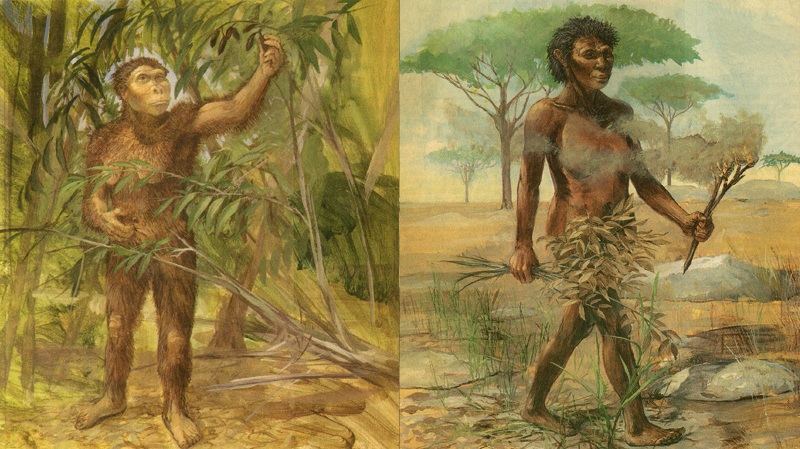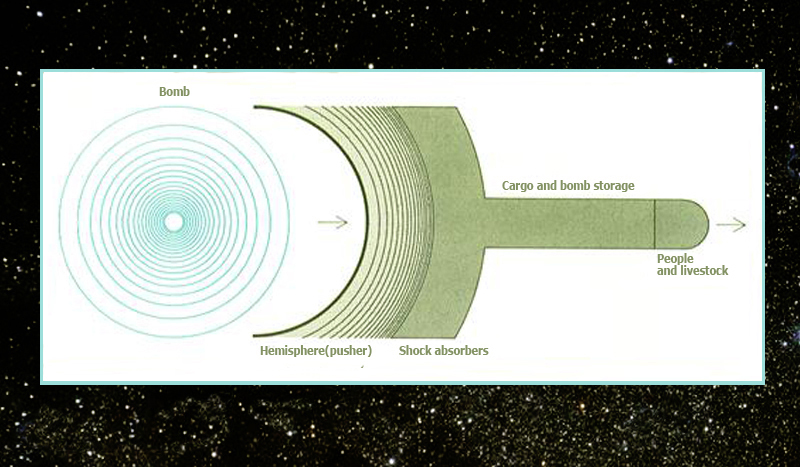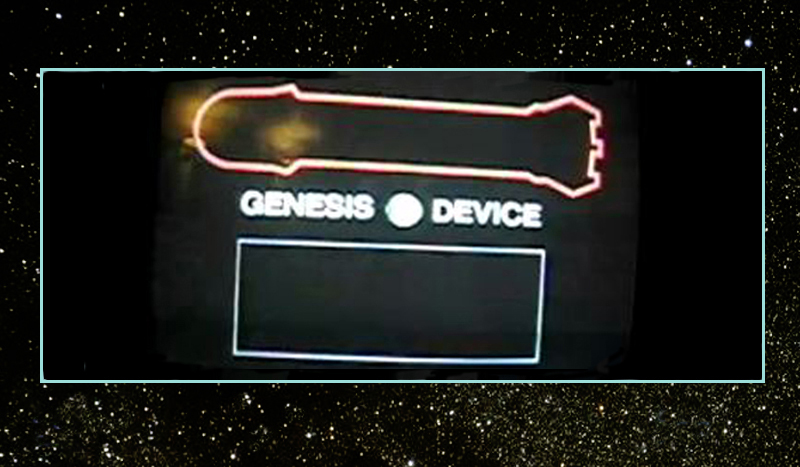When we came up with the idea of freewill, we pulled the rug out from under ourselves and started wearing it as a hat. It’s our most cherished conceit. In a moment of inspired bravado we went over the wall from the rest of nature and we’ve been on the lam ever since. Our newfound freedom imbued us with a superiority regarding all other life and an even greater sense of unique ultimate purpose.
By assuming this position, however, we effectively separated ourselves from ourselves. Part of us it turned out had stayed behind. Whereas some things seemed to be definitely under our control, others most assuredly were not. A dispute within each of us ensued in which we attempted to reconcile the dilemma. Thousands of years later, it’s still going strong. Being creatures of two minds has complicated our sense of self no end; even the ‘smartest’ among us are at odds with themselves.
Carl Sagan once remarked that ”We are the first species to have taken our evolution into our own hands” but when asked whether we should extend that sensibility into space he replied, “…we have no choice…we are genetically compelled.” Similarly, Nietzsche contended that “A thought comes when it will, not when I will.” but then went on to say that man’s “essence, his actions, his entire single, inevitable, and irredeemable reality – is a voluntary achievement, something willed…”
This ‘on the bus/off the bus?’ predicament expresses itself most clearly in the ongoing debate between “Science” and “Religion”, the latter being the greatest promoter of “freewill” and Science that of genetic determinism. Both sides, however, espouse aspects of the opposing point of view, resulting in a convoluted state of antagonism that appears impossible to resolve. We have become in effect, the only organism on the planet that is perpetually off balance. Quantum physics suggests that we can be in two places at once, but it has little to offer about being in one place at once with two opposing states of mind. It doesn’t as yet even have a handle on “we”, a shortcoming that becomes that much more evident when “we” consider what “we” will say to ‘alien’ life forms.
Carl Sagan was one of the foremost proponents of the search for extraterrestrial intelligence and instrumental in the launching of the Voyager spacecrafts to that end. I happened to illustrate The New York Times’ article about the “Earth’s Greatest Hits L.P.” that he and his associates had assembled and placed onboard. Considering what actually went onto the record, the definition of ‘intelligence’ struck me as remarkably shaky.
The disc was encoded with images as well as the ‘sounds’ of Earth and it goes without saying that the most relevant would be those of the things that had made it: human beings that is, in their various historical and ethnic get-ups possibly, but most importantly in their simple, unadorned state. The idea of a naked man and woman, however, was not acceptable to the committee in charge, and they were shown instead only as black silhouettes. There were photographs of various ethnic groups and natural phenomena, but none of the actual process that occasions human life… much less the workings of the parts involved. The plaque on the outside of the craft did show line drawings of a naked man and a woman, but after much hand wringing and soul searching apparently, the tiny single line indicating the woman’s vulva was removed. Any alien intelligence with half an ounce of insight would undoubtedly be amused by our apologetic sense of self. On the other hand, the idea that aliens even have such faculties as humor and insight is simply par for the hypothetical folly. Images of human beings shown to some ethnic groups on this planet make no sense to them – even images of themselves.
The mindset that contemplates space travel is a mixed bag encompassing the full range of convictions regarding humans’ sense of self and their relationship to the rest of nature, but it’s from out of it that a delegation will be organized to communicate with “intelligences” other than our own. The question is, what do we say in the unlikely event something or someone actually responds to the messages we’ve sent? How does such a confused and confusing consensus explain itself?
Science takes pride above all in constantly reevaluating its findings, a kind of honesty that it levels against religion, which does not. But scientific theory by its own definition is only ever a temporary expediency. It is always subject to revision as new discoveries are made. Under those terms, all knowledge is inherently false, simply because it’s always incomplete. Explaining anything with umpteen other human voices in disagreement is difficult enough, but it’s compounded by the possibility that the scientific know-how we think we possess may even become obsolete during the course of the transmission.
At this point in time, according to astrophysicists, it all started with a Big Bang, a phrase that not only seems grossly inadequate for an event of such significance, but also a contradiction in terms. “In space no one can hear you scream” we’ve been told, let alone hear a “bang” … no matter how big it is, or how close the listener’s ear might be. Given that the first humans who would conjure up the notion of bangs were “13.7 billion years” in the future, it seems even more inappropriate. Would “Big Began” not be more to the point? But then what is “Big”? Compared to what?
From that singular event, in which matter suddenly and spontaneously erupted from nowhere into being, stars, planets, moons and other assorted stuff were propelled outwards in all directions. Into space one would assume – the unstuff that was already there – but not so. Prior to the bang there was nothing at all say the experts – no space, no time, no matter, no energy. Common sense suggests that a singular initiating event would imply a singular point of origin – a center as it were to the universe. Again the experts disagree. There is no center. Everything is expanding outwards but not necessarily from the same place. If pressed for more details these same experts respond that, “We don’t know where it came from, why it’s here or even where it is. All we know is that we are inside of it and at one time it didn’t exist and neither did we.” This is insight indeed. A caveman could have uttered it and probably many of them did. Aaah, but a caveman wasn’t capable of sending objects up into this incomprehensible former nothing.
(“Space” we were also once led to believe was infinite, prompting yet another painfully plebian question: how can something that is infinite be expanding?)
The answer to all this may rest with Black Holes we’re told; hypothetical phenomena where things are sucked back and forth and in and out of nothing on a regular basis – also belying the idea of singularity one would think. Black Holes, Big Bangs and things getting sucked in and out are terms one might attribute to the daydreams of teenage boys who don’t get out enough, but they’ve been bestowed upon us by individuals exalted in the history of human thought. A further indication of their imaginative acumen is demonstrated by some of the means by which they suggest these holes and bangs might be explored.
In the 1970s, Timothy Leary wrote from Folsom Prison about humans needing to escape from the Earth and suggested ways in which they might overcome the difficulties of crossing the vast distances involved. He proposed a cigar shaped spaceship powered by atomic explosions blasted against two enormous spheres suspended behind it. Leary’s preoccupations can certainly be attributed to a guy who didn’t get out enough, but the precedent for the idea had appeared in Physics Today in 1968. An idea proposed by physicist Freeman Dyson – complete with diagram.
This is not science fiction…
“Ceci n’est pa une pipe”…
This is science fiction…
Such unabashed means for penetrating the mysteries of space are in stark contrast to the reluctance to owning up to having sexual parts at all. In the 21st century, the discrepancy is still very much with us.
The New York Times illustration above of our female ancestors, accompanied an article in the Science section of the paper published in 2003. It described the way in which we humans lost our hair – or as Nietzsche might have it – how our hair lost itself. The fear of offending readers over their Sunday coffee and croissants resulted in nipples and pudenda being painstakingly obscured by branches and smoke. In keeping with that idea, Facebook started removing images of mothers breast-feeding in 2008. In response to protests, they revised their policy to allow breasts in “the act of feeding” … but not simply hanging out for no reason. Loitering with intent as it were. The audience of Facebook includes minors after all, who must be protected from stumbling upon an image of something they were once intimately familiar with and in fact depended on for life.
What characterizes both this moralizing perspective and the so-called more enlightened view of science is ardor. A passionate sense of what’s right. Adamant, disparate convictions held by individuals and groups of individuals who feel compelled to enlighten others and would surely insist they be included in any delegation that reaches out to equally enlightened folks elsewhere in the cosmos.
This contradictory, gung ho, mish mash of religious dogma, scientific elitism, and out and out adolescent fantasy is what we will take with us to explore – and in all likelihood wreck – other planets; it’s what we will extend as our calling card to other forms of life. Our treatment of the other life on this planet is a fairly good indication of that. Other life that we essentially dismiss in terms of “intelligence’ simply because no matter how much we talk to them… they don’t talk back. This is what’s implicit in our quest for life out there it seems: the idea that we can sit down and chat with other folks about what it’s all about. In light of our behavior, our fellow Earthly organisms give the surest indication of intelligence precisely because they don’t talk back. Like the other guests in a hotel full of unruly, conceited, destructive “rock stars” they may be patiently, silently waiting for us to leave.
“The world of animals” said Lamartine “is an ocean of sympathies from which we taste but a few drops…” an idea not lost on Arthur C. Clarke, another proponent of the search for extraterrestrial intelligence. At the World’s Fair in 1964 he laid down predictions for the future of human progress and some ideas for animals as well…
“With the use of genetics and our present knowledge of animal psychology we can certainly solve the servant problem – with the help of the monkey kingdom. It’s a scandal of which we should be thoroughly ashamed that prehistoric man tamed all the domestic animals that we have today – we haven’t added one in the last 5,000 years. It’s about time we did so.”
Science for all its non-religious claims is steeped in the metaphors and terms that comprise it. “Dominion over the animal kingdom” and “shame” are part and parcel of the overall conviction that we are not only in control of our own actions but everything else’s as well. The Enlightenment was in fact inspired by the need to exercise that power and to prove God’s existence through rational, empirical enquiry. From Galileo to Newton to Bacon up through Sigmund Freud, the ‘messianic’ compulsion to bring enlightenment to the world has derived from creationist doctrine. In the case of Freud, it merely replaced original sin and holy confession with the ‘scientific’ theory of repressed sexuality and the psychoanalysis couch. Like others before him, Freud was also obsessed with the quest for a single theory to explain everything. A “single key” as he put it” to open every lock.”
Stephen Hawking, the Delphic oracle of our time, is another advocate of this single theory idea – and is also onboard with the search for intelligent life in space. In a three-way discussion with Carl Sagan and Arthur C. Clarke, in the 1980s, he prophesied with characteristically, wild-eyed conviction, that his unified theory – which will explain how “everything works” – would conceivably be arrived at by the year 2000… always supposing we don’t “blow ourselves up” before hand. (A concern shared by Arthur Clarke and Sagan both.)
It’s 2014 now and so far not a twitch either way. What’s key, is that it’s the same “we” that’s in charge, no matter what the outcome. The idea that there is a majority of life on the planet that doesn’t subscribe to the Judeo/Christian/Scientific, progress-driven mindset – or that something entirely ‘unscientific’ and/or, unreligious might happen instead – is not a consideration. WE have simply got it going on. In a few more years WE may know everything.
It’s easy to imagine three equally clever Romans sitting around the dinner table having the same conversation:
“Look at us! Technology, culture, law, economics… there’s never been anything like us. We’ve got it going on! We’re on the edge of something even bigger, I know it…”
“Knock, knock!”
“Who’s there?”
“Visigoths!”
Whitey wouldn’t take a bath for another 1500 years.
The flip side of all this is the possibility that we may announce ourselves to something even more screwed up than we are. Given our serious psychological difficulties, sending buckets of goodies out into space might be tantamount to the Maya sending ships across the Atlantic in the 1400s loaded with gold and jewels and pictures of themselves in sarongs and sandals. Along with a note of course:
“Hi there…we’re here…give us a call sometime… stop by even…”
If that were the case, when it’s all over, the otherworldly visitors might leave us a note:
“Thanks…and by the way…we love the hat!”
Malcolm Mc Neill
Malcolm Mc Neill writes a weekly column for Paraphilia Magazine:
http://www.paraphiliamagazine.com/periodical/columns/malcolm-mcneill



